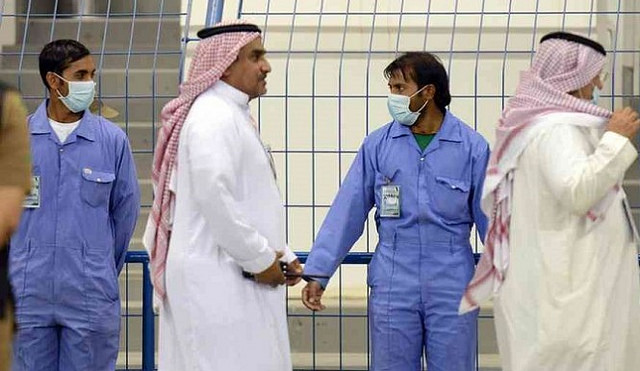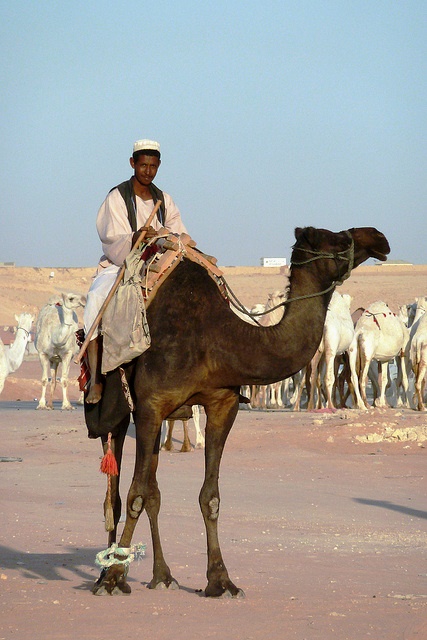The Complicated Dynamic of Arab’s Love-Hate Relationship with the Rest of the World
/U.S. Secretary of State John Kerry & Arab League Secretary-General Dr. Nabil Elaraby,, Photo by U.S. Department of State
MIDDLE EAST - The relationship the Middle East maintains with other global nations is complicated. Whether political relations or social ties, trying to understand the depth of Arab’s love-hate relationship with other countries sometimes seems like an impenetrable task.
Without taking into consideration foreign nations, the countries that make up the Middle East are themselves strategically aligned despite differences in terms of social issues, beliefs, regulations, and political dominance. The conflicts and alliances within the boundaries of Arab nations impacts the global landscape in innumerable ways and has great significance.
The Middle East maintains a very definite and elaborate relationship with the rest of the world. Some of these relationships are cordial, others born of necessity and political expediency such as Gulf security, while others are mutually beneficial and actively nurtured. It is very interesting to study and understand the relationship between Arab nations and rest of the world.
Here is a snapshot of the relationships shared with different countries:
With The USA
This relationship depicts an underlying distrust of the fundamentalist values that govern most Arab nations, juxtaposed with an insatiable dependence upon Arab’s vast oil reserves. This high energy consumption is a primary reason that the United States walks a delicate balance in maintaining cordial relationships with Middle East countries despite periodic conflicting priorities. For instance, after 9/11 there were numerous allegations by the U.S. government that some of terrorists originated from Saudi Arabia. This caused a potential rift in relations, but unlike Iran, the dependence on the oil and Saudi Arabia as a formidable ally in the region, the U.S. negotiated terms under which it could continue to receive the much needed petroleum.
"The United States imported approximately 9 million barrels per day (MMbbl/d) of petroleum in 2014 from about 80 countries. Petroleum includes crude oil, natural gas plant liquids, liquefied refinery gases, refined petroleum products such as gasoline and diesel fuel, and biofuels, including ethanol and biodiesel. In 2014, about 80% of gross petroleum imports were crude oil, and about 44% of the crude oil that was processed in U.S. refineries was imported.
The top five source countries of U.S. petroleum imports in 2014 were Canada, Saudi Arabia, Mexico, Venezuela, and Iraq. The country rankings vary based on gross petroleum imports or net petroleum imports (gross imports minus exports)." (Source: U.S. Energy Information Administration)
The intricate relationship between the U.S. and Saudia Arabia started with ‘Abd al-‘Aziz Ibn Saud’, the founding monarch of Saudi Arabia. The event was initiated by most respected American president, Franklin D. Roosevelt in the year 1951. The outcome of these negotiations forever connected Arab’s oil with American national security.
In the current climate in the Middle East as well as the continuing instability in the entire region, the increasingly interdependent relationship between the kingdom and the U.S. is largely driven by the supply of cheap oil in in exchange for American protection. The ‘hate’ factor cannot be denied as well; as xenophia against all Arabs is rampant in the U.S. in some instances with cause, but in many it is the result of a lack of education and exposure.
With China
The relationship between the Peoples' Republic of China and Saudi Arabia goes beyond the love for ‘oil’ or rather the greed for it. The mutually beneficial relationship is predicated by an exchange of goodsfor petrol. This success of this relationship can be seen in the ubiquity of Chinese goods being sold in throughout the Middle East. Like most countries that are voracious consumers of the low price goods manufactured in China, Saudi Arabia procures many of these items through bilateral agreements in which China gets oil in exchange. In addition, there are a number of infrastructure projects being undertaken by the two countries which include:
- Saudi Arabia has become increasingly important as an investment location for the Chinese (with the Saudi reciprocating the interest by increasing their presence in China as part of King Abdullah’s “Look East” strategy).
- Chinese firms have begun to invest in infrastructure and industry in Saudi Arabia, including in an aluminum smelter in the southern province of Jizan, at a cost of US$3 billion.
- Direct flights from China
- Beijing-Jeddah (4 flights weekly)
- Guangzhou-Jeddah (1 flight weekly)
- Guangzhou-Riyadh (3 flights weekly) (Source: China Briefing)
The Middle East clearly understands that China’s global rise is a force to be reckoned with and that a strong relationship between the two will be mutually beneficial. The price for this relationship is built upon economic and infrastructure interests versus the quid pro quo relationship that exists between the Saudi Arabia and the U.S. which trades oil in exchange for Gulf security.
With India & Other Asian Countries
India has become a major business partner with Saudia Arabia. Like other nations the relationship between the two countries is primarily a "buyer-seller" relationship with oil being the primary commodity. The recent visit of Saudi Arabia's Crown Prince Salman bin Abdulaziz Al Saud to New Delhi boosted strategic ties and the two countries agreed to explore ways and means to transform their buyer-seller relationship. According to Saudi Arabia is India's fourth largest trading partner at $43.78 billion in fiscal 2012-13. In the April-November period of the current fiscal, the two-way trade was $32.7 billion. Imports of crude by India form a major part of this trade. Almost one-fifth of India's oil imports come from Saudi Arabia. (Source: Times of India)
Further, India provides companies stationed in Arab nations like the UAE and Qatar with an efficient and cost effective laborer force and the Gulf employment market has benefited immensely from this exchange.
In summary, each of these relationships was initially established on a foundation of oil trade, but have since diversified their partnerships to the mutual benefit of each nation. Call it the greed for oil or the Middle East’s initiative to achieve economic diversification, the ‘love-hate’ relationship that exists between it and other nations will continue to balance on a delicate fulcrum. These relationships, though fraught with dangers, will ultimately result in greater interdependence, increased stability in the region, and the development of alternate sources of revenue.
Middle East Correspondent: @vinita1204




























